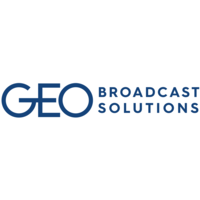The start of the comment period for a Notice of Proposed Rulemaking on a bold plan to modify the FCC‘s rules governing the operation of FM booster stations by radio broadcasters has come.
And, it saw the company behind ZoneCasting state its case while noting that the filing of comments “marks the beginning of an active debate on innovation in the radio industry.”
You can say that again. The NAB also filed comments on Wednesday regarding the NPRM. In its view, enabling geo-targeting “will depress Radio advertising rates and revenues at
a time when broadcasters already face enormous economic and competitive challenges.”
That’s just one of many takeaways from the FCC’s opposition to the NPRM permitting FM booster stations to originate programming on a limited basis.
While the NAB commended the Commission for exploring new ways to bolster local radio, it made it very clear that permitting boosters would undermine Radio’s business model and even cause harm to smaller radio stations.
Then, there are interference issues and technical concerns.
In comments prepared in part by NAB EVP/Legal and Regulatory Affairs Rick Kaplan, the GEO Broadcasting Solutions proposal would have a lethal impact on commercially licensed radio stations.
“Based on their considerable advertising expertise, most station owners predict that
existing advertising customers will likely substitute, rather than supplement, market-wide ads with cheaper, geo-targeted ads,” the NAB’s legal team says. “They also agree that potential sales of geo-targeted ads to new customers are purely speculative.”
Further, the NAB believes broadcasters “do not by and large see pent-up demand
by small businesses in their local markets that have not previously purchased advertising
time, and even if such demand exists, it would not be economical to undertake the
substantial investment to capture the additional business.”
The result? Stations would be forced to hire and retrain sales staff and implement sophisticated systems for managing ad inventory and maximizing revenues, the NAB claims. “Revising the booster rule could therefore devastate radio net revenues,
hampering stations’ ability to serve listeners,” the lobbying organization’s legal counsel states.
The NAB further asserts that the Geo Broadcast Solutions proposal’s “voluntary” nature does not save it.
“The risks identified above exist even if only one or two stations in a market volunteer to geo-target programming because ad buyers will inevitably gravitate toward cheaper, geo-targeted ads, leaving other stations no choice but to pay to use GBS’s ZoneCasting system or charge unsustainably low ad rates,” the NAB says. “Amending the booster rule could very well produce a race to the bottom of ad rates and revenues, and NAB is concerned that ZoneCasting will only increase the leverage of larger broadcasters and consolidated groups at the expense of smaller stations.”
Additionally, the NAB believes minority- and women-owned stations could be hardest hit if they cannot afford the expense of selling geotargeted ads or absorb lower advertising rates and new competition for ad dollars from the boosters of larger stations.
NARROWCASTING: THE NARROW VIEW ON BROADCAST ADS
The risks to advertising the Geo Broadcast Solutions plan could bring to NYMRAD and New York City-based radio stations was singled out by the NAB, using Geo Broadcast Solutions’ own filings and mapping submissions.
As shown below, GBS has depicted a high-powered station broadcasting from downtown
Manhattan that could use boosters to create zoned coverage areas in New Jersey,
Connecticut and on Long Island.

The NAB’s thoughts on this?
Although GBS offers this image to illustrate the station’s opportunity to use boosters to
geo-target news and information to these respective areas, the station would also be able to sell geo-targeted ads. It is easy to foresee the negative impact on smaller stations licensed to Edison, N.J., and Mount Kisco, N.Y., and other distant suburbs. Such broadcasters must already compete with nearby stations for precious ad dollars from grocery stores, car dealers and other small businesses in the local area. If the booster rule is amended, they could be pitched into battle against much larger, New York City-based broadcasters for this critical local business. And contrary to GBS’s claims, some broadcasters believe that any such opportunity to sell zoned ads to new customers will largely be one-way because smaller stations do not have access to the capital necessary to implement geo-targeting as effectively, or capture enough new advertising business to justify the effort.
Meanwhile, the NAB further questions the “usefulness” of ZoneCasting for stations in small and mid-sized markets.
The final conclusion from the NAB and its members? “After careful review, nearly all radio broadcasters consider GBS’s proposal as a lose-lose proposition in which the only winners would be the technology provider and advertisers.”
What does GeoBroadcast Solutions have to say? Spokesperson Robert Udowitz says, “Some parties oppose new technologies and innovation, and that is a familiar story for those who have watched broadcast media evolve over the decades. However, a broad range of large and small stations and broadcast groups, the advertising community, and minority coalitions, have indicated their desire to embrace innovation and the future by using broadcast airwaves for a more personal and localized experience.”
He adds, “The proposed rule change will enable those broadcasters who want to use technology to pursue radio geo-targeting, which we see as the entryway to a potential trove of economic improvement and business opportunities for each broadcaster. We recognize that some parties see only complexities and challenges with this new technology, but we see potential and the ability for the radio industry to finally join other media in the 21st Century to bring more targeted content and enable advertisers to reach specific audiences. The net result has great potential to promote localism and to improve the balance sheet of the industry and we are excited to work closely with the industry to address the benefits and concerns.”
To view the entire NAB comment filing with the FCC, please click here.





